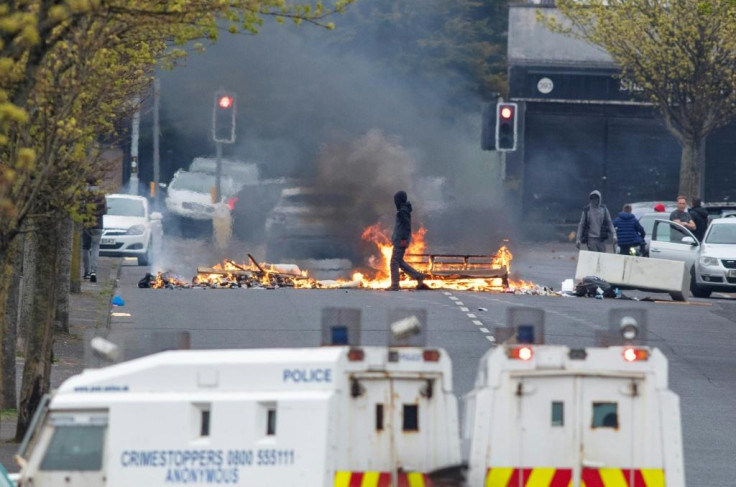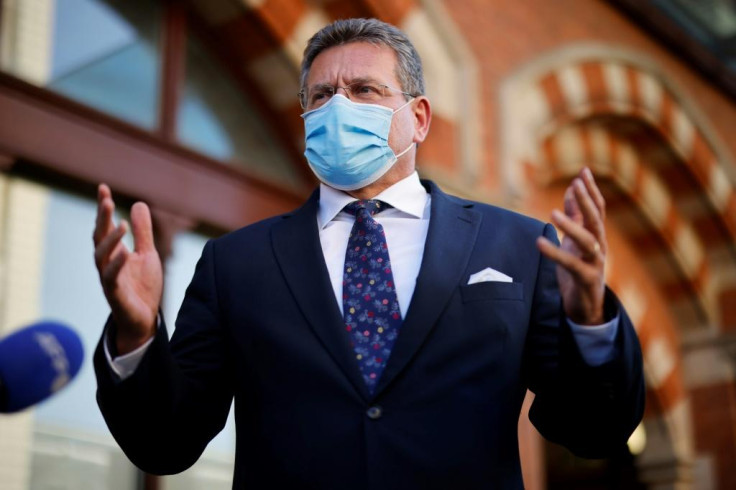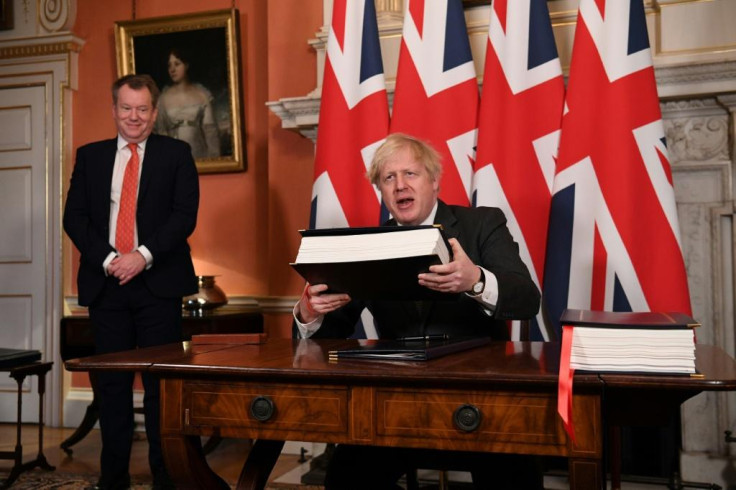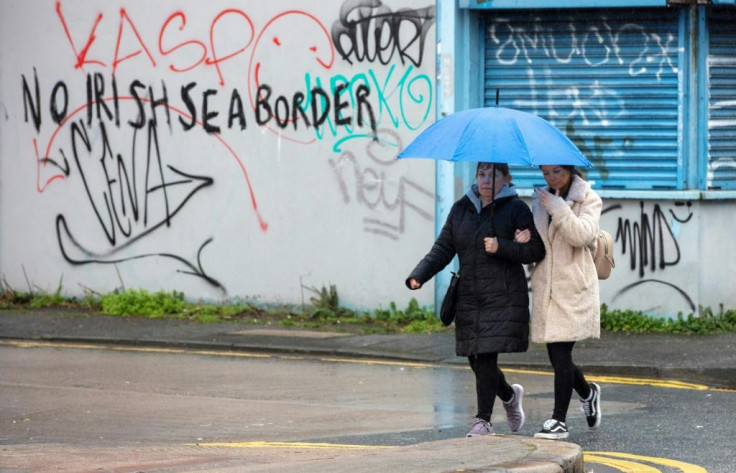EU threatens UK over post-Brexit Northern Ireland trade
Northern Ireland is still deeply divided between pro-UK mainly Protestant unionists and pro-Ireland largely Catholic nationalists.
The European Union on Wednesday threatened the UK with retaliatory action if it refuses to implement post-Brexit trading arrangements in Northern Ireland, after talks to solve the simmering row broke up without agreement.
Visiting European Commission vice president Maros Sefcovic said Brussels' patience with London was "wearing thin" over its failure to enforce checks on goods heading to the province from mainland Britain.
"Today I can say we are at a crossroads in our relationship with the UK. Trust, which should be at the heart of all relationships, needs to be restored," he told a news conference in London.

There were "numerous and fundamental gaps" in Britain's compliance with the agreement, he added.
"If the UK were to take further unilateral action in the coming weeks, we will not be shy in reacting swiftly, firmly and resolutely."
Asked what form that might take, he said it could include legal action, arbitration or other retaliatory measures, including targeted tariffs.

That has prompted talk of a potential "sausage war" on the UK side of the Channel, with a grace period on shipping chilled meat products to Northern Ireland set to end this month -- and the UK threatening to extend it.
But Sefcovic insisted: "We don't want this to happen... It's not too late. Let's correct the path."
A senior UK official close to the talks also stressed that "nobody wants to get into a trade war or anything close to it," and denied the UK had breached the agreement, saying it had been "designed to give quite wide margins to respond to events".

London and Brussels signed a last-gasp trade deal in December, nearly four years after the landmark Brexit referendum and just weeks before Britain left the European single market and customs union.
The two sides negotiated a separate deal for Northern Ireland, which has the UK's only land border with the EU, to prevent unchecked goods entering the single market.
But the port checks on deliveries heading into Northern Ireland from mainland Great Britain -- England, Scotland and Wales -- have caused consternation among Northern Irish unionists, who say this changes their place in the wider UK.

Checks had to be suspended earlier this year because of threats to port staff, and the protocol was blamed for the worst violence in years in the British-run province.
An increase in paperwork for goods heading from mainland Britain to Northern Ireland has caused delays, and in some instances shortages in shops.
Prime Minister Boris Johnson told parliament the issue was about protecting the country's territorial and economic integrity.
"What we are doing is prioritising the right and ability of the people of Northern Ireland to have access, as they should, freely and uninterruptedly, to goods and services from the whole of the UK," he added.
UK Brexit minister David Frost for his part characterised the three-and-a-half hours of discussions as "frank and honest", saying the dialogue had not broken down and more meetings were planned.
But he called for the EU to be more flexible to address the issue in Northern Ireland pragmatically, given the province's fragile peace.
Northern Ireland is still deeply divided between pro-UK mainly Protestant unionists and pro-Ireland largely Catholic nationalists, despite a 1998 peace deal that ended three decades of violence over British rule.
"What we really now need to do is very urgently find some solutions which support the Belfast Good Friday Agreement, support the peace process in Northern Ireland, and allow things to return to normal," Frost told reporters.
The EU has already launched legal proceedings against the UK after it delayed custom controls on some goods arriving in Northern Ireland from mainland Britain, and has indicated it has US support if it chooses to act again.
State Department spokesman Ned Price said the United States will encourage both sides "to prioritise economic and political stability in Northern Ireland and to negotiate within existing mechanisms when those differences arise".
Copyright AFP. All rights reserved.
This article is copyrighted by International Business Times, the business news leader





















